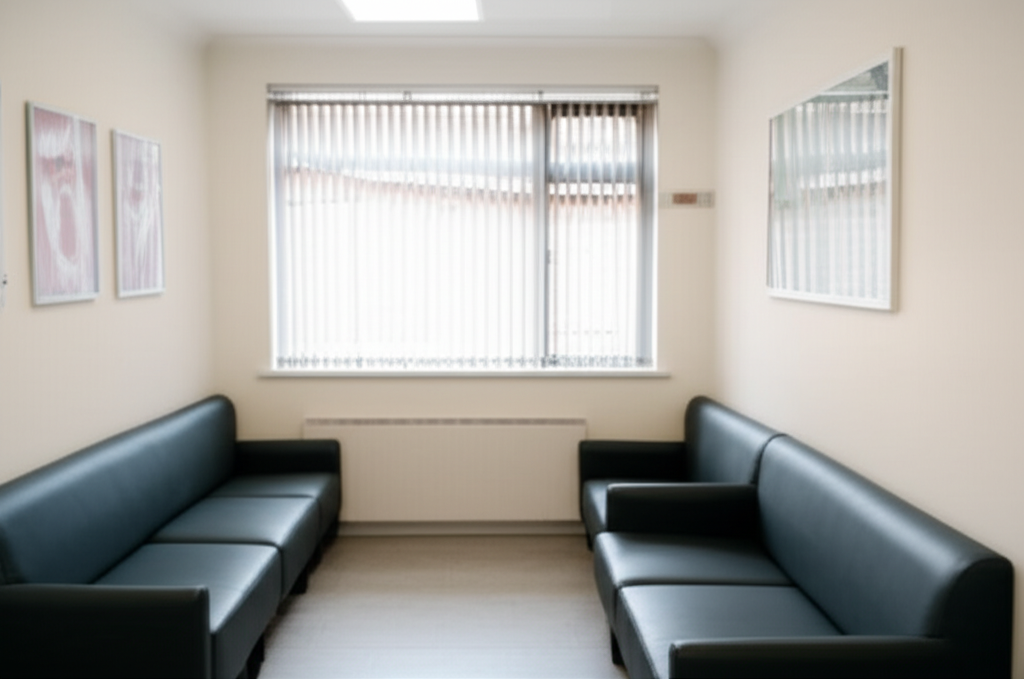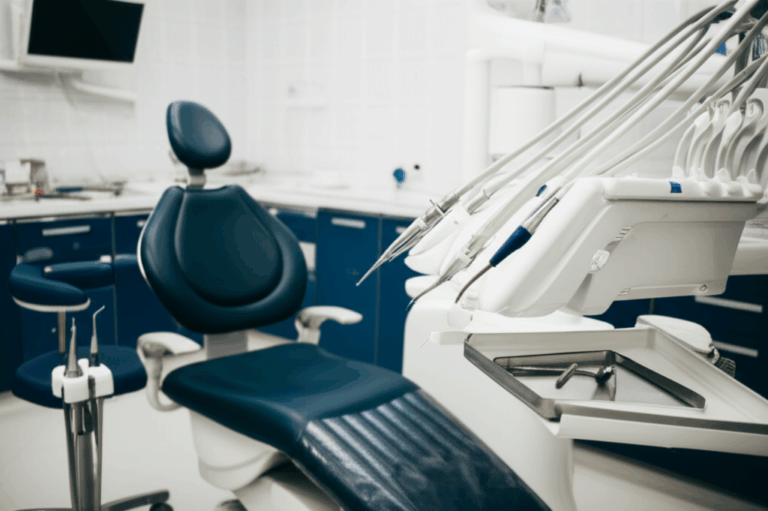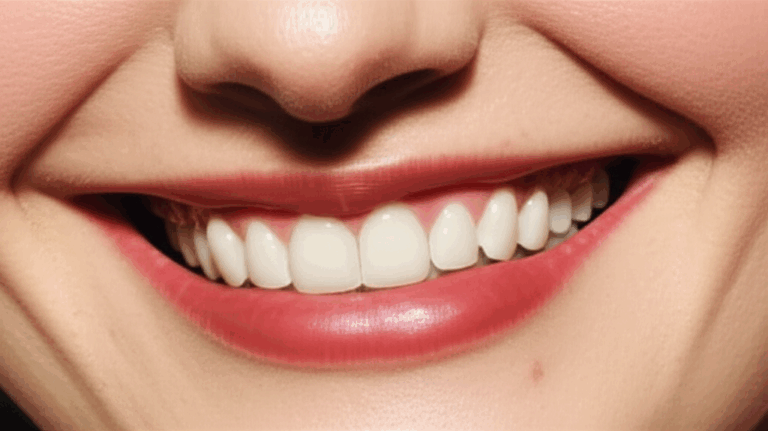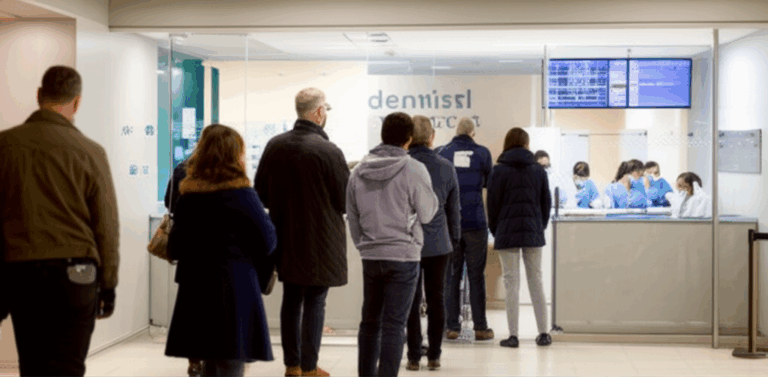
Finding an NHS Dentist: Are Any Practices Accepting New Patients Near You?
Short Summary:
Lots of people in the UK find it really hard to get an NHS dentist who’s taking new patients. This guide will show you how to look for a dentist, tell you why it’s so tricky, and offer ideas to help you get the dental care you need. If you’ve had long waiting times, phones not answered, or pain while trying to get help, you’re not the only one—this article is for you.
Table of Contents
Introduction: The Big Dental Problem
If you’ve ever tried to get a dentist who takes NHS patients, you know it’s really tough. The phone just keeps ringing, or you check online and always get the same answer: “Not taking new NHS patients.” I remember helping my neighbour Jane when her dentist stopped doing NHS work—and we spent days calling around, hoping for a spot on a waiting list! It made me see how many families feel stuck and upset.
But don’t give up. In this article, I’ll show you the best steps, explain why things are so difficult, and give you real tips that can help. I’ll also go over costs, emergencies, and what to do if you need a dentist today. Let’s work through it together.
Why Is It So Hard to Find an NHS Dentist?
I meet lots of people who think it’s just bad luck. The truth is, there are real problems making it hard to get NHS dental care.
NHS Dental Contract Problems
Dentists working for the NHS are paid with something called Units of Dental Activity (UDA). Lots of dentists say this way is unfair, makes them hurry, and doesn’t pay enough for hard treatments. Because of this, over 3,000 dentists left the NHS in England in just a year [Source: NHS Digital, 2022/23].
Dentist Shortage and Dental Deserts
Have you heard of a “dental desert“? That means there are hardly any dentists taking NHS patients nearby. Over 4 million adults in the UK couldn’t get an NHS appointment at all last year [House of Commons Health and Social Care Committee, 2023]. These “dental deserts” are real and cause trouble in towns and villages.
Post-Pandemic Backlog and Demand
COVID-19 made things worse. Many check-ups and treatments were delayed, so waiting lists got even longer. I know kids who haven’t seen a dentist since before the pandemic—one in five children missed their last check-up! No wonder it’s so hard to find a space.
How to Find an NHS Dentist Accepting New Patients
Don’t worry! If you’re trying to find an NHS dentist, there are still things you can do.
Use the Official NHS Website
The NHS website has a “Find a Dentist” tool to help you look nearby.
- Go to the NHS website and write your postcode
- Pick “Dentist”
- Tick the box for “Accepting new NHS patients”
But here’s a good tip: not all practices keep their online info up to date, so…
Call Local Practices Directly
Even if the website says “not taking patients,” call them anyway. The staff can tell you if they have a waiting list, or if they might start taking people soon (like when the year’s budget begins). I got onto my local practice’s list just by calling up—it took a while, but it worked.
Ask About Community Dental Services or Dental Access Centres
If you have children, disabilities, or special needs, some places have Community Dental Services or Dental Access Centres. These often help people who really struggle to get care. Ask your GP or health board if you might be able to use these.
Register with a GP for Local Help
You have to be signed up with a GP, and sometimes your doctor can give ideas or even phone up for you. I’ve seen GPs help parents find phone numbers and get on any lists.
What If No NHS Dentists Are Taking Patients?
Called every practice nearby? Checked everywhere online? You’re not alone. But there is hope.
Get on a Waiting List and Keep Trying
Ask every practice if they have a waiting list—leave your name and number. Be polite (the staff are busy) and ring back every month or two. Sometimes spaces open quickly when new funding comes in, or if people leave.
Look Further Away
Some countryside places have more NHS dentist spaces than busy towns. One family I know drove 30 minutes for check-ups—but they got in! Ask friends or check online groups to see if things are better in nearby towns.
Take Care of Your Teeth at Home
If you have to wait, really focus on keeping your mouth healthy. Brush your teeth twice a day with fluoride toothpaste, floss, and keep sugary snacks and drinks low. Good habits will help you while you search.
What Counts as a Dental Emergency—and What to Do
When pain hits, you can’t just wait.
What Is a Dental Emergency?
A dental emergency means you have:
- bad pain that won’t stop with tablets
- swelling in your face
- bleeding in your mouth that won’t stop
- teeth that are knocked out or broken
How to Get Emergency NHS Dental Care
Call NHS 111 for urgent advice. They can book you in at Emergency Dental Hubs or Urgent Dental Care (UDC). You might need to travel, but they’ll try to see you quickly if it’s a real emergency.
Remember, emergency services are for things that can’t wait—not normal check-ups.
Could Private Dentistry Help You While You Wait?
It’s normal to want NHS care, but sometimes paying privately is the only way to stop pain or fix urgent problems—as a short-term help.
Private vs NHS Dental Services
Private care usually costs more—sometimes three to five times as much—but you’ll get seen quicker. Some practices let you pay for just one visit, even if you don’t sign up for more.
Examples of Private Costs vs NHS Bands
Here’s a simple table so you know what to expect:
| Treatment | NHS Band | NHS Cost* | Private Cost (Average*) |
|---|---|---|---|
| Oral check-up | Band 1 | £25.80 | £60 – £100 |
| Filling | Band 2 | £70.70 | £120 – £200 |
| Crown/Fake Tooth | Band 3 | £306.80 | £500 – £1,000 |
-2024 charges; private prices change from place to place.
If you need something special, like a retainer or bridge, some top dental ceramics labs can work with your dentist to make what you need, quickly and well.
How Much Does NHS Dental Care Cost?
With the NHS, costs come in three bands:
- Band 1 (£25.80): Check-up, x-rays, cleaning, prevention
- Band 2 (£70.70): Band 1 plus fillings, taking teeth out, root canals
- Band 3 (£306.80): Band 1 & 2 plus dentures, crowns, and bridges
You pay once for each course of care. For example, if you need a check-up and fillings, you pay the Band 2 fee.
Some people need special things—like a night guard. A night guard dental lab can work with both NHS and private dentists to provide these.
Who Can Get Free NHS Dental Treatment?
Some people don’t have to pay for NHS dental care. Here’s who:
- Children under 18
- Full-time students under 19
- Pregnant women or new mums (last 12 months)
- People on some benefits (like Income Support, or Universal Credit in some cases)
- People with a valid NHS tax credit exemption certificate
- People in hospital getting treatment from the hospital dentist
You’ll usually fill out a form (the NHS Exemption Form) at the dentist’s office. If you’re not sure, bring proof and ask at the desk.
Tips That Can Make a Big Difference
Sometimes, just one little thing helps. Here’s what dentists say:
Keep Trying and Be Nice:
Receptionists are really busy. Being friendly can help.
Ask for Quiet Times:
If you’re free in the middle of the day, you might get a slot. Early and late times fill up first.
Tell Them If You’re in Pain:
Don’t say it’s worse if it isn’t, but be honest. They may put you on an urgent list.
Update Your Info:
If you move or change number, let them know—or you might lose your spot.
Want a new retainer? Ask if your dentist works with a dental lab for retainers.
What Is Happening to NHS Dentistry in the Future?
It’s not all bad! The government is trying new contracts and thinking about better pay for dentists. Dental schools have more training spots and new Dental Workforce Reform plans [Department of Health and Social Care, 2023].
Many groups—including the British Dental Association and Healthwatch England—are asking for more money and fairer rules.
Your Opinion Helps: Use the NHS website or speak to Healthwatch England to tell your story or make a complaint. Real stories make a difference!
Frequently Asked Questions
Q: Can I change NHS dentists if I don’t like mine?
Yes. You can sign up with any NHS dentist who’s taking new patients. Just let your old one know.
Q: What if my child can’t get a check-up—will it harm their teeth?
Not straight away, but check-ups help. Teach them to brush well and keep sweets low until you find a spot.
Q: My dentist is only taking private patients now. What should I do?
Ask them if they know any nearby NHS dentists, and keep checking back every so often—things change!
Q: Are there special services for people with disabilities or anxiety?
Yes. Community Dental Services often help these groups. Talk to your GP or local health board about your needs.
Key Points to Remember
- Don’t give up! Getting an NHS dentist is hard—but not impossible.
- Use the NHS website, but always call local practices too.
- Get on any waiting lists. Call back as much as you can.
- If it’s urgent, call NHS 111. Don’t sit in pain.
- Private care helps in emergencies but costs more.
- Keep looking after your teeth at home.
- Free care is there for kids, students, pregnant women, or those on certain benefits.
- Speak up and give feedback—it helps everyone.
- If you need something special, look for professionals linked to a china dental lab or experts in dental implants.
Reviewed by: Dr. Joe Dental, NHS and Private Practitioner
Getting the care you need can feel like a puzzle, but every piece matters. Keep trying, stay aware, and don’t be afraid to ask for help—you deserve a healthy, happy smile!







